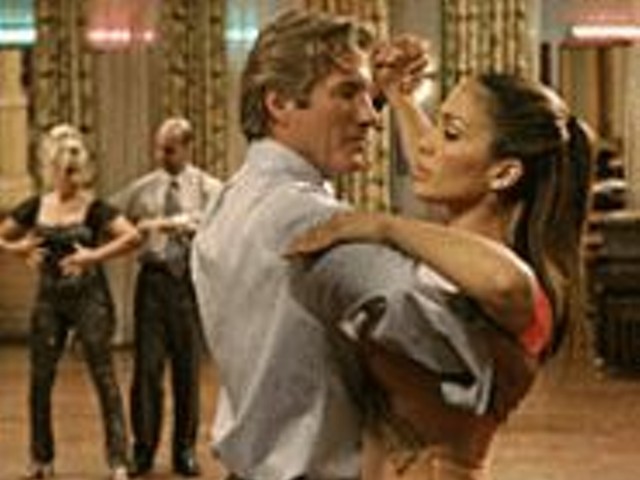Eager to enhance his profile at the bureau -- especially since his more successful brother is its deputy director -- FBI agent Joe Devine (Alec Baldwin) is sent to Rhode Island to nail midlevel mobster Tommy Sanz (Tony Shalhoub). The feds suspect Sanz of brokering bribes between filmmakers and the Teamsters, who transport people and equipment to and from the movie set. But because they need to catch him in the act, Joe comes up with his plan to pose as a producer. Now all he needs is a screenplay and a director. They don't even have to be good.
Of course, lousy screenplays and directors are easy to find in Hollywood, where every parking valet, golf caddy and masseuse has written a script and wants to direct it. Joe finds the perfect patsy in nebbish nice guy Steven Schats (Matthew Broderick), who has been pitching his hopelessly unsellable script (about a dying woman who limps into the Arizona desert in search of Hopi Indians) for ten years without so much as a nibble. Steven is so excited that his dream is finally coming true that he doesn't even ask about Joe's credentials.
In fact, so desperate is Steven to get the movie made that he agrees to shoot in Providence rather than Arizona, where the story is set. The Grand Canyon is improvised in a landfill; papier-mâché facsimiles replace living, indigenous cacti; a storage closet serves as the Indian cave; and the mighty Colorado River is downsized to an anemic channel that runs through the heart of Providence. Steven even agrees to hire way-past-her-prime ingénue Emily French (Toni Collette) in the lead role that his girlfriend expected to get.
Hollywood screenwriter Jeff Nathanson (Catch Me If You Can, Rush Hour) was so taken with the true-life story -- which found not one but two hapless young film partners, Gary Levy and Dan Lewk, being suckered (both serve as associate producers on the film) -- that he decided to make the story his directorial debut. The film, which he also scripted and which does deviate in some ways from the real story, boasts a few bits of genuinely cute humor -- and a great deal of lame humor. There are the obvious Hollywood stereotypes: the eternally optimistic dreamer, with big ambitions and not an ounce of talent; the self-absorbed star; and the self-aggrandizing studio executive, who loves to hear herself talk. There's even a character who commits suicide in a Jacuzzi -- something that seems as if it could only happen in LA.
The humor is decidedly silly rather than cynical, but too much of it falls flat. The actors, however, are ingratiating. The perpetually boyish-looking Broderick always brings an innocence and likability to his roles, and Steven is no exception (interestingly, the plot here is an inverse of sorts of the Tony Award-winning play The Producers, in which Broderick co-starred). Baldwin gets to show off his comic skills to nice effect here. Equally appealing is the way he registers a genuine sense of regret and an undercurrent of sweetness as he gets to know and like Steven -- and realizes that he is about to break the young man's heart.





